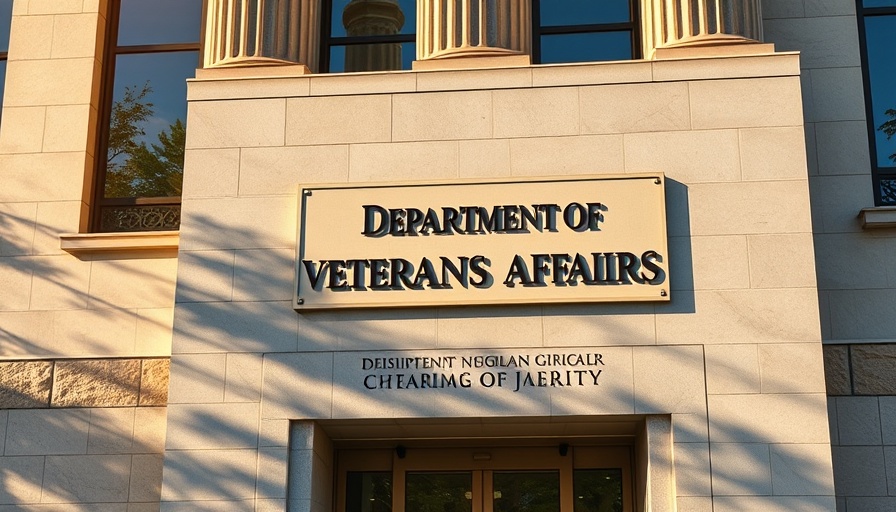
A Major Policy Shift: What It Means for Transgender Veterans
The recent reversal of Directive 1341 by the U.S. Department of Veterans Affairs (VA) has left many in the transgender veteran community anxious and uncertain about their healthcare. As of March 14, 2025, this directive provided vital protections that ensured access to gender-affirming healthcare, including hormone therapy and respectful treatment consistent with their gender identity.
This abrupt change comes amid a broader political shift, aligning with the recent executive orders that attempt to redefine gender and limit recognition of transgender identities across federal policies. Advocates, like Lindsay Church, executive director of Minority Veterans of America, express concern that this will force transgender veterans to reconsider whether they can safely seek care within the VA system.
The Emotional Impact: Fear Among Veterans
For many transgender veterans, the implications of rescinding the directive go beyond practical healthcare services. Internal VA communications indicate that many staff members are already witnessing growing anxiety among their patients who fear discrimination. Transgender individuals have a significantly higher suicide rate compared to their peers, and critics argue that eliminating protective measures exacerbates this dire mental health statistic.
As reported in various studies, the stress of navigating a healthcare system that may no longer affirm their identity could deter these veterans from seeking the care they need, potentially leading to a public health crisis.
The Future of Gender-Affirming Care
Despite reassurances from the VA that clinical guidance for care remains unaffected, the lack of clear protections leaves considerable room for uncertainty. The VA's commitment, as stated in the internal memo, now raises questions about how much trust this community can place in a system that is undergoing significant ideological shifts. These rumors of impending policy changes fuel fears that the future of gender-affirming healthcare could be at risk.
Healthcare analysts and advocates underscore the need for continued support of gender-affirming procedures, suggesting that comprehensive care should remain a priority for the veterans' administration, especially in light of alarming suicide rates in this demographic.
Call to Action: Advocating for Policy Reinstatement
Moving forward, immediate action is needed from both advocacy groups and the general public to pressure lawmakers to reinstate these critical healthcare protections for transgender veterans. Heightened public awareness and advocacy can ensure that the voices of those affected are heard and that their rights to equitable care are protected.
As the VA prepares for a comprehensive review of care concerning trans-identifying veterans, it is imperative that stakeholders join together to advocate for policies that guard against discrimination and promote inclusive healthcare solutions.
 Add Row
Add Row  Add
Add 




Write A Comment